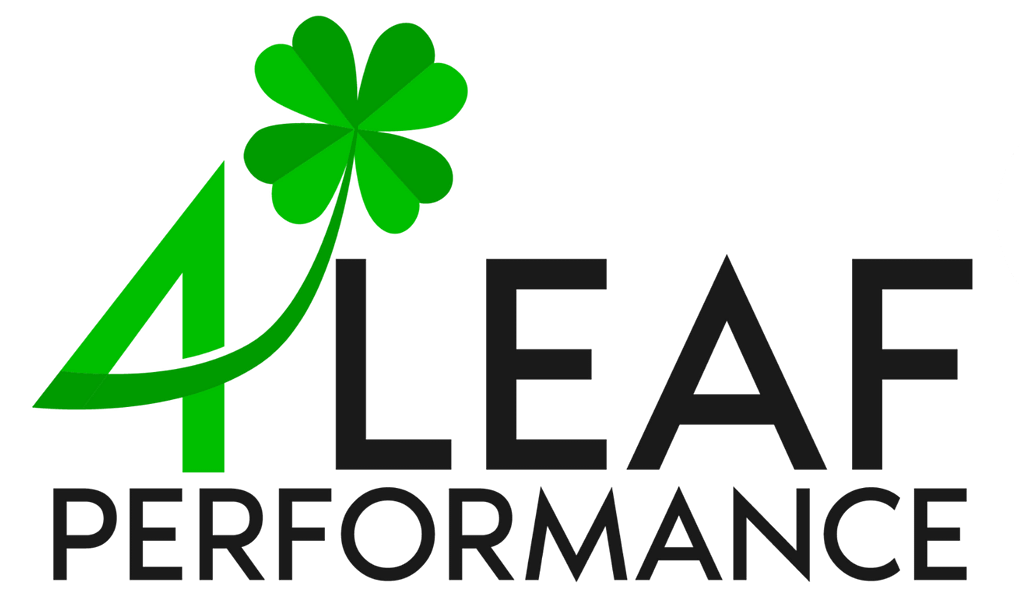Understanding your team’s communication style and behavior is crucial for creating a productive and harmonious work environment. One tool that can help with this is the DiSC assessment. This personality assessment categorizes people into four distinct behavioral traits: Dominance (D), Influence (I), Steadiness (S), and Conscientiousness (C). Unlike other personality tests, the DiSC profile focuses on workplace interactions, providing valuable insights into how team members communicate, make decisions, and approach their work.
For businesses looking to improve team dynamics, the DiSC personality assessment offers a practical way to clarify how different personalities can complement each other. By identifying each team member’s DiSC personality type, you can better understand their strengths, motivations, and potential areas for growth. This knowledge helps build stronger relationships and leads to more effective communication and collaboration in the workplace.
What is the DiSC Assessment?
The DiSC assessment is a personality assessment tool designed to help individuals and teams understand their behavioral tendencies. By categorizing behavior into four primary DiSC personality types—Dominance (D), Influence (I), Steadiness (S), and Conscientiousness (C)—the DiSC profile gives insights into how people communicate, make decisions, and respond to different situations in the workplace.
The DiSC personality assessment is unique because it focuses on workplace behavior, making it a practical tool for improving team dynamics. It’s commonly used in team-building exercises, leadership development, and conflict resolution, helping teams identify how to work more effectively together. The assessment is simple: team members answer questions, and the results are mapped onto a DiSC profile highlighting their dominant personality traits.
One key advantage of the DiSC analysis is its adaptability. While most people have one or two dominant personality traits, everyone is a blend of all four DiSC personality types. This blend allows team members to adapt their behavior based on different situations or challenges in the workplace. Understanding these blended traits helps teams communicate more clearly, collaborate efficiently, and create a more inclusive work environment.

The Four DiSC Personality Types
The DiSC assessment categorizes behavior into four distinct personality types: Dominance (D), Influence (I), Steadiness (S), and Conscientiousness (C). Each DiSC personality type offers unique insights into how team members approach communication, collaboration, and problem-solving.
Understanding these four DiSC personality types allows you to better appreciate your team members’ diverse strengths and communication styles. This knowledge enables you to tailor your approach, fostering stronger collaboration and improving team performance.
Dominance (D)
Team members with a Dominant personality are results-driven, confident, and decisive. They thrive in fast-paced environments and are motivated by power, authority, and achieving success. Their focus is on action and challenge, making them ideal for roles that require quick decision-making and strong leadership. However, they may fear losing control or appearing vulnerable. When communicating with Dominance types, it’s best to be direct, concise, and focus on the bottom line.
Influence (I)
Influence personalities are enthusiastic, collaborative, and persuasive. These team members are motivated by social recognition and building relationships. They enjoy environments that allow them to express creativity and engage in group activities. Influence types value individuality and tend to fear rejection or disapproval. To communicate effectively with Influence personalities, emphasize positivity, share personal experiences, and allow them time to ask questions.
Steadiness (S)
Steadiness types are calm, patient, and dependable. They prefer a stable environment and are motivated by cooperation and helping others. These team members value loyalty and are typically excellent at creating harmony within a group. They may fear sudden changes or disruptions to their routine. When interacting with Steadiness types, being polite, patient, and clear about your expectations is essential to ensure they feel supported.
Conscientiousness (C)
Conscientious personalities are detail-oriented, analytical, and systematic. They are driven by accuracy and quality and excel in environments that require precision and logical thinking. Conscientiousness types value expertise and may fear making mistakes or receiving criticism. To communicate with Conscientiousness types, focus on facts and data, avoid emotional language, and give them the time they need to process information thoroughly.

Advantages of Using the DiSC Assessment in the Workplace
The DiSC assessment offers significant benefits for improving team communication, collaboration, and leadership. By understanding the different DiSC personality types, businesses can create a more productive and cohesive work environment. Here’s how the DiSC analysis can bring real advantages to your workplace:
Improved Communication
One of the primary benefits of using the DiSC profile is that it helps team members communicate more effectively. Each DiSC personality type has a unique communication style, and knowing these differences reduces misunderstandings. For example, Dominance (D) types prefer direct, results-oriented conversations, while Influence (I) types respond better to enthusiasm and personal engagement. Tailoring communication to each personality type can improve clarity and reduce friction in day-to-day interactions.
Enhanced Team Collaboration
The DiSC personality assessment enables better team collaboration by aligning tasks with each team member’s strengths. Knowing your team’s DiSC profiles allows you to delegate responsibilities more strategically, ensuring that team members work in areas where they naturally excel. For instance, Steadiness (S) types often thrive in roles that require patience and cooperation, while Conscientiousness (C) types perform well in detail-oriented, analytical tasks. This alignment boosts efficiency and teamwork.
Conflict Resolution
Conflict is inevitable in any workplace, but the DiSC analysis provides valuable insights into how team members handle tension. Understanding different DiSC personality types can help resolve conflicts more quickly and constructively. For example, a Dominance (D) type may be more direct in conflicts, while a Steadiness (S) type may prefer to avoid confrontation altogether. By recognizing these tendencies, managers can mediate disputes with a better understanding of each party’s approach.
Leadership Development
The DiSC assessment is also a powerful tool for leadership development. Leaders who understand the DiSC profiles of their team members can adapt their management style to meet different needs. For instance, a leader might offer more detailed feedback to a Conscientiousness (C) type while providing broader, big-picture guidance to a Dominance (D) type. This adaptability helps leaders create a more motivating and supportive environment for the entire team.
How the DiSC Assessment Improves Workplace Culture
A positive workplace culture is built on understanding, communication, and collaboration. The DiSC assessment can play a key role in fostering these elements, helping create an environment where team members are better equipped to collaborate and support each other. The DiSC profile helps organizations nurture a more inclusive and cohesive workplace culture by providing insights into each team member’s behavioral tendencies.
Fosters Inclusivity and Understanding
One of the most significant ways the DiSC personality assessment improves workplace culture is by encouraging inclusivity. The DiSC analysis helps teams appreciate each member’s strengths and communication styles. For example, a team with a mix of Dominance (D), Influence (I), Steadiness (S), and Conscientiousness (C) personalities can learn to respect each other’s approaches. This understanding reduces the likelihood of misunderstandings and creates an environment where diverse perspectives are not just tolerated but celebrated.
Promotes Personal Growth
The DiSC personality assessment also empowers team members to become more self-aware. By understanding their own DiSC profile, individuals can identify areas for improvement in communicating and collaborating with others. For instance, a Dominance (D) type may realize they need to be more patient with Steadiness (S) types, who prefer a slower pace. This awareness promotes personal growth, as team members can work on refining their interpersonal skills to contribute more effectively to the team.
Encourages Accountability
Accountability is another area where the DiSC assessment can make a difference. When team members understand their behavior patterns and how they affect others, they are more likely to take responsibility for their actions. For example, a Conscientiousness (C) type might recognize their tendency to focus too much on details and adjust their behavior when working with more action-oriented team members. This leads to better team dynamics and fosters a culture of accountability where everyone is conscious of how their behavior impacts the group.

Implementing DiSC in Your Workplace
Implementing the DiSC assessment in your workplace can yield long-term benefits. A well-planned approach helps team members understand their DiSC profiles, recognize others’ strengths, and adapt their behaviors accordingly. Here’s a guide to successfully introducing and integrating the DiSC personality assessment in your organization:
Conducting Assessments
The first step in implementing the DiSC assessment is to have team members complete the assessment. Introduce it during onboarding to help new hires quickly integrate into the team or as part of team-building activities for current team members. Leadership and managers can use these profiles to understand their teams better, tailoring management and communication styles accordingly. Many organizations conduct DiSC assessments online, allowing team members to answer questions revealing their unique DiSC personality types. The results provide a clear DiSC profile for each individual, detailing their natural strengths and preferred ways of interacting.
Interpreting Results and Sharing Insights
Once team members have completed their DiSC assessments, review the results collectively. Share insights into each person’s DiSC personality type and discuss how these traits can complement each other on projects and daily interactions. Emphasize that every DiSC profile is valuable and that each personality type brings unique strengths to the workplace. Sharing these results helps team members better understand each other’s motivations and communication styles, reducing potential misunderstandings. Encouraging open dialogue about personality traits fosters a more inclusive and supportive environment.
Creating Actionable Plans for Team Development
To fully leverage the DiSC analysis, develop actionable plans for team development based on the insights gained from each DiSC profile. For instance:
- Assign Roles Based on Strengths: Use DiSC profiles to match team members with tasks that align with their natural strengths, such as assigning detail-oriented tasks to Conscientiousness (C) types or collaborative roles to Influence (I) types.
- Adapt Communication Styles: Encourage team members to tailor their communication based on the profiles of others. For example, they can practice clear, concise communication with Dominance (D) types and offer more collaborative discussions with Steadiness (S) types.
- Plan Team-Building Activities: Create team-building exercises incorporating DiSC types, helping team members recognize how different personalities complement each other. For example, group tasks that involve strategic planning may benefit from Conscientiousness (C) types, while brainstorming sessions might thrive with the input of Influence (I) personalities.
Applying DiSC in Leadership Development
The DiSC assessment is especially useful in leadership training. Leaders who understand the DiSC personality types within their team can adapt their management styles to support each team member’s needs. For example, a leader might focus on providing detailed instructions for a Conscientiousness (C) type while giving more autonomy to a Dominance (D) type. This approach fosters a sense of trust and respect within the team and improves overall job satisfaction and engagement.
Continuous Integration and Regular Check-Ins
The DiSC assessment isn’t a one-time tool; it provides ongoing benefits that grow as team members revisit and apply their insights. Conduct regular check-ins where team members can reflect on their DiSC profiles and discuss any adjustments they’ve made to improve team interactions. This practice encourages continuous learning and personal growth as team members become more aware of how to impact others positively.
Setting Up Supportive Structures
To support long-term success, consider establishing structures within your organization that reinforce the use of DiSC profiles. These might include:
- Workshops and Refresher Sessions: Host periodic workshops that revisit DiSC profiles and provide training on how to adapt to others’ styles.
- Performance Reviews Using DiSC Insights: Discuss how team members apply their DiSC insights in performance reviews to help align personal development with team goals.
- Personal Development Plans: Help team members set goals based on their DiSC profile that align with their roles and responsibilities. For instance, an Influence (I) type might work on enhancing their active listening skills, while a Dominance (D) type might focus on collaborative decision-making.

Unlock the Benefits of DiSC Analysis for Your Workplace
The DiSC assessment offers a powerful way to improve workplace communication, collaboration, and leadership. By understanding your team members’ DiSC personality types, you can create a more inclusive and productive work environment where everyone’s strengths are recognized and valued. From enhanced team dynamics to leadership development, the DiSC profile provides valuable insights that can transform your workplace culture.
If you’re ready to take the next step in improving your workplace culture, 4 Leaf Performance offers a comprehensive DiSC Assessment package to help your team understand their communication styles and work together more effectively. Our package includes the DiSC personality assessment, detailed results, and practical guidance on how to use these insights to foster collaboration and accountability.
For businesses seeking more in-depth support, 4 Leaf Performance also provides expert executive coaching services to guide you through implementing the DiSC analysis and other strategies to shape your workplace culture. Contact us today to learn how we can help your team thrive by better understanding their unique behavioral traits.



